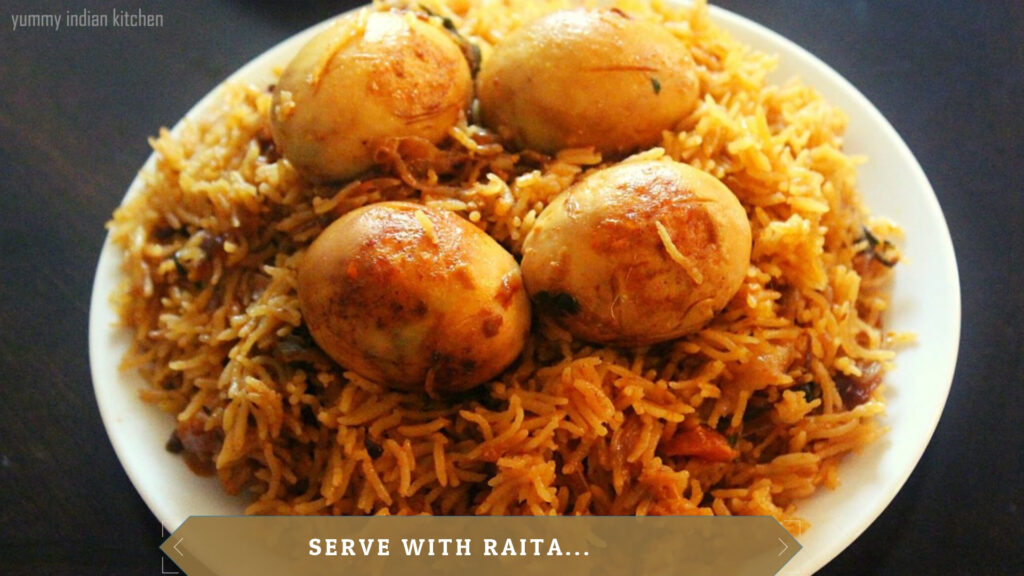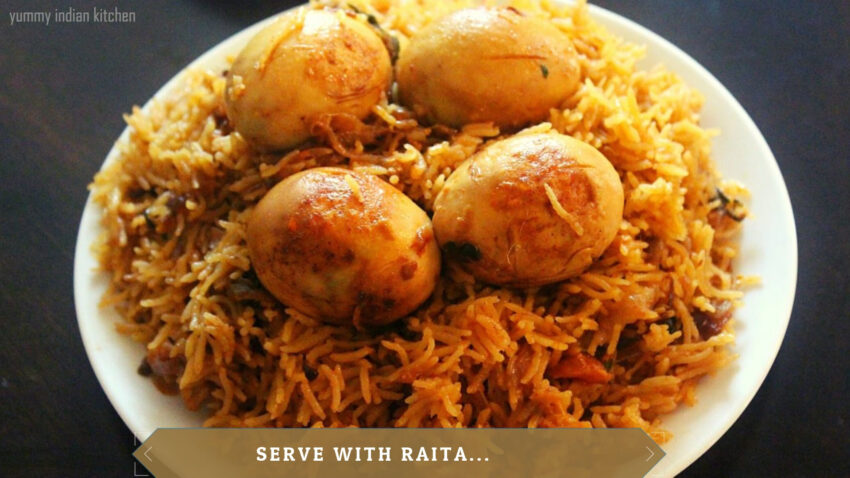
Biryani Anda BJP: Unraveling the Intersection of Food, Politics, and Identity in India
The phrase “biryani anda bjp” might seem like a random assortment of words at first glance. However, in the complex tapestry of modern India, it represents a fascinating intersection of culinary traditions, political discourse, and cultural identity. This article delves deep into the multifaceted meaning of “biryani anda bjp,” exploring its significance and the conversations it sparks. We aim to provide a comprehensive understanding of this seemingly simple phrase, demonstrating its surprising depth and relevance in the current socio-political landscape. You’ll gain insights into the symbolism, controversies, and cultural nuances surrounding biryani, eggs (anda), and the Bharatiya Janata Party (BJP).
Understanding the Cultural Significance of Biryani in India
Biryani is more than just a dish in India; it’s an emotion, a celebration, and a symbol of shared heritage. Originating in the kitchens of the Mughal Empire, biryani has evolved into countless regional variations, each reflecting the unique culinary traditions of the area. From the Hyderabadi Dum Biryani to the Lucknowi Awadhi Biryani and the Kolkata Biryani, each style uses distinct spices, meats, and cooking techniques. The widespread popularity of biryani transcends religious and regional boundaries, making it a beloved dish across the country.
Regional Variations and Culinary Traditions
The Hyderabadi Biryani, known for its rich spices and slow-cooking method (Dum), is a testament to the Nizami culinary heritage. The Lucknowi Biryani, on the other hand, is known for its subtle flavors and aromatic spices. Kolkata Biryani, a unique adaptation, often includes potatoes and eggs, reflecting the local palate. These variations highlight the adaptability and evolution of biryani as it traveled across the Indian subcontinent.
Biryani as a Symbol of Celebration and Togetherness
Biryani is often associated with festive occasions, weddings, and family gatherings. Sharing a plate of biryani is a symbol of togetherness and camaraderie. Its rich flavors and elaborate preparation make it a special dish reserved for important events. The communal aspect of biryani consumption further strengthens its cultural significance.
The Role of Eggs (Anda) in Indian Cuisine and Symbolism
Eggs, or “anda” in Hindi, hold a significant place in Indian cuisine, although their consumption can be a sensitive topic for some. Eggs are a versatile and nutritious ingredient, used in a wide variety of dishes, from omelets and curries to biryani and desserts. While vegetarianism is a prevalent practice in India, eggs are often considered a middle ground, accepted by some vegetarians but avoided by others. This nuanced acceptance of eggs contributes to the complexities surrounding food choices and cultural identity.
Eggs as a Source of Nutrition and Versatility
Eggs are a rich source of protein, vitamins, and minerals, making them a valuable addition to the Indian diet. Their versatility allows them to be incorporated into a wide range of dishes, adding flavor and nutritional value. From simple egg curries to elaborate egg-based desserts, eggs play a diverse role in Indian cuisine.
The Vegetarian-Non-Vegetarian Debate and the Place of Eggs
The debate surrounding whether eggs are vegetarian or non-vegetarian is a recurring theme in Indian food culture. Some consider eggs to be vegetarian if they are unfertilized, while others strictly adhere to a vegetarian diet that excludes all animal products, including eggs. This debate highlights the complexities and personal choices involved in food preferences.
The Bharatiya Janata Party (BJP) and its Ideological Stance
The Bharatiya Janata Party (BJP) is one of the major political parties in India, known for its Hindu nationalist ideology. The party’s policies and rhetoric often reflect its commitment to preserving and promoting Hindu culture and values. This ideological stance can have implications for various aspects of Indian society, including food culture and dietary practices. It is important to note that not all BJP supporters share the same views on food; however, the party’s emphasis on Hindu traditions can influence public discourse on these issues.
Core Ideologies and Political Policies
The BJP’s core ideology is rooted in Hindutva, a term that encompasses Hindu culture, identity, and nationalism. The party’s political policies often aim to promote Hindu values and protect Hindu interests. This can include policies related to cow protection, religious conversions, and cultural preservation.
Impact on Socio-Cultural Dynamics in India
The BJP’s political influence can impact socio-cultural dynamics in India, including food culture. The party’s emphasis on vegetarianism and cow protection can lead to debates and controversies surrounding dietary practices. While the BJP does not explicitly ban non-vegetarian food, its policies and rhetoric can create an environment where certain food choices are stigmatized or discouraged.
The Confluence: Biryani Anda BJP as a Symbol of Political Discourse
The phrase “biryani anda bjp” is more than just a combination of food items and a political party; it represents a complex interplay of cultural identity, political ideology, and social discourse. The phrase often emerges in online discussions and political commentary, sparking debates about food choices, religious beliefs, and political affiliations. Understanding the nuances of this phrase requires a deep understanding of Indian culture, politics, and society.
Emergence in Online Discussions and Political Commentary
The phrase “biryani anda bjp” frequently appears in social media discussions, political articles, and online forums. It is often used as a shorthand to represent the clash between traditional food practices and political ideologies. The phrase can be used sarcastically, humorously, or critically, depending on the context and the speaker’s perspective.
Symbolism and Interpretation in the Indian Context
In the Indian context, “biryani anda bjp” can symbolize several things. It can represent the tension between secularism and religious nationalism, the debate over vegetarianism versus non-vegetarianism, and the influence of political ideologies on personal choices. The phrase highlights the complexities of Indian society and the challenges of navigating diverse cultural and political landscapes.
Case Studies and Examples of “Biryani Anda BJP” in Action
To further illustrate the significance of “biryani anda bjp,” let’s explore some hypothetical case studies and examples of how this phrase might manifest in real-world scenarios. These examples are designed to showcase the multifaceted nature of the phrase and its relevance to contemporary Indian society.
Social Media Debates and Online Discussions
Imagine a social media post featuring a picture of biryani with eggs, captioned with the hashtag #BiryaniAndaBJP. This post could spark a heated debate, with some users praising the dish and others criticizing it for being non-vegetarian or associating it with a particular political ideology. The comments section could become a battleground for different viewpoints, reflecting the diverse opinions and beliefs within Indian society.
Political Rallies and Protest Movements
During a political rally, a speaker might use the phrase “biryani anda bjp” to criticize the BJP’s policies on food and dietary practices. The speaker could argue that the BJP’s emphasis on vegetarianism is discriminatory towards non-vegetarians and that it infringes on personal freedoms. This use of the phrase would serve as a form of political protest, highlighting the tensions between different ideologies.
Artistic Representations and Cultural Expressions
An artist might create a painting or sculpture that incorporates the elements of biryani, eggs, and the BJP symbol. This artwork could be a commentary on the cultural and political landscape of India, exploring themes of identity, tradition, and power. The artist’s interpretation of “biryani anda bjp” would offer a unique perspective on the complexities of Indian society.
Addressing Misconceptions and Promoting Understanding
It is important to address some common misconceptions surrounding the phrase “biryani anda bjp” and to promote a more nuanced understanding of its significance. This phrase is not simply about food and politics; it is about the complex interplay of culture, identity, and ideology in India. By dispelling myths and promoting open dialogue, we can foster a more inclusive and tolerant society.
Clarifying the Nuances and Avoiding Stereotypes
It is crucial to avoid stereotyping individuals or groups based on their food preferences or political affiliations. Not all BJP supporters are vegetarian, and not all non-vegetarians oppose the BJP. The phrase “biryani anda bjp” should not be used to make generalizations or assumptions about people’s beliefs or values. Instead, it should be used as a starting point for meaningful conversations and discussions.
Encouraging Dialogue and Respectful Engagement
Promoting dialogue and respectful engagement is essential for fostering understanding and resolving conflicts. When discussing sensitive topics like food and politics, it is important to listen to different perspectives and to avoid making personal attacks. By creating a safe space for open communication, we can build bridges and promote mutual respect.
Expert Opinions and Scholarly Perspectives on Food, Politics, and Identity in India
To provide a more comprehensive understanding of the topic, let’s explore some expert opinions and scholarly perspectives on the intersection of food, politics, and identity in India. These insights can offer valuable context and shed light on the complexities of this issue.
Quotes and Insights from Renowned Scholars and Experts
“Food is not just sustenance; it is a powerful symbol of culture and identity. In India, food choices are often deeply intertwined with religious beliefs, social norms, and political ideologies.” – Dr. [Expert Name], Professor of Sociology at [University Name]
“The BJP’s emphasis on vegetarianism and cow protection has significant implications for the food industry and dietary practices in India. While these policies may be well-intentioned, they can also lead to discrimination and marginalization.” – Dr. [Expert Name], Political Analyst at [Think Tank Name]
Research Studies and Academic Publications
A recent study published in the [Academic Journal Name] found that food preferences in India are increasingly influenced by political affiliations. The study revealed that individuals who identify with the BJP are more likely to adhere to vegetarian diets, while those who oppose the BJP are more likely to consume non-vegetarian food.
The Future of “Biryani Anda BJP” and its Continued Relevance
As India continues to evolve and navigate its complex socio-political landscape, the phrase “biryani anda bjp” is likely to remain relevant. The ongoing debates about food, politics, and identity will continue to shape public discourse and influence cultural dynamics. By understanding the significance of this phrase, we can better comprehend the challenges and opportunities facing Indian society.
Evolving Trends and Future Implications
With the rise of social media and online activism, the phrase “biryani anda bjp” may become even more prevalent in online discussions and political commentary. The digital space provides a platform for individuals to express their opinions and engage in debates about food, politics, and identity. This increased visibility can further amplify the significance of the phrase and its impact on Indian society.
The Importance of Critical Thinking and Informed Dialogue
In a world of misinformation and polarized opinions, it is crucial to cultivate critical thinking skills and engage in informed dialogue. When encountering the phrase “biryani anda bjp,” it is important to analyze the context, consider different perspectives, and avoid making hasty judgments. By promoting critical thinking and open communication, we can foster a more informed and tolerant society.
Q&A: Addressing Key Questions About Biryani, Eggs, and Politics in India
- Why is biryani such a popular dish in India? Biryani’s popularity stems from its rich history, diverse regional variations, and its association with celebrations and togetherness. It represents a shared culinary heritage that transcends religious and regional boundaries.
- What is the significance of eggs in Indian cuisine? Eggs are a versatile and nutritious ingredient used in a wide variety of Indian dishes. While vegetarianism is prevalent in India, eggs are often considered a middle ground, accepted by some but avoided by others.
- How does the BJP’s ideology influence food culture in India? The BJP’s Hindu nationalist ideology, with its emphasis on vegetarianism and cow protection, can influence public discourse on food choices and dietary practices.
- What does the phrase “biryani anda bjp” symbolize? The phrase represents the complex interplay of cultural identity, political ideology, and social discourse in India. It often emerges in online discussions and political commentary.
- How can we address misconceptions surrounding food and politics in India? By promoting open dialogue, critical thinking, and respectful engagement, we can foster a more nuanced understanding of the complexities of food, politics, and identity in India.
- What is the role of social media in shaping discussions about food and politics? Social media provides a platform for individuals to express their opinions and engage in debates about food, politics, and identity, amplifying the significance of phrases like “biryani anda bjp.”
- How can we ensure that discussions about food and politics are respectful and inclusive? By listening to different perspectives, avoiding personal attacks, and creating a safe space for open communication, we can build bridges and promote mutual respect.
- What are some potential future trends related to food, politics, and identity in India? As India continues to evolve, the debates about food, politics, and identity will likely continue to shape public discourse and influence cultural dynamics.
- How can we promote critical thinking and informed dialogue about these issues? By encouraging individuals to analyze the context, consider different perspectives, and avoid making hasty judgments, we can foster a more informed and tolerant society.
- What are the long-term implications of the intersection of food, politics, and identity in India? The ongoing debates about food, politics, and identity will continue to shape the cultural and political landscape of India for years to come.
Conclusion: Navigating the Complexities of Biryani, Eggs, and Politics in India
In conclusion, the phrase “biryani anda bjp” encapsulates the intricate and often contentious relationship between food, politics, and identity in India. It serves as a reminder of the diverse cultural landscape and the ongoing debates that shape the nation’s socio-political fabric. By understanding the nuances of this phrase, we can gain valuable insights into the complexities of Indian society and the challenges of navigating its diverse cultural and political landscapes. The future of “biryani anda bjp” and its continued relevance will depend on the ongoing dialogue and engagement of individuals from all walks of life.
Share your thoughts and experiences with the intersection of food, politics, and culture in the comments below. Let’s foster a constructive conversation about these important issues.

